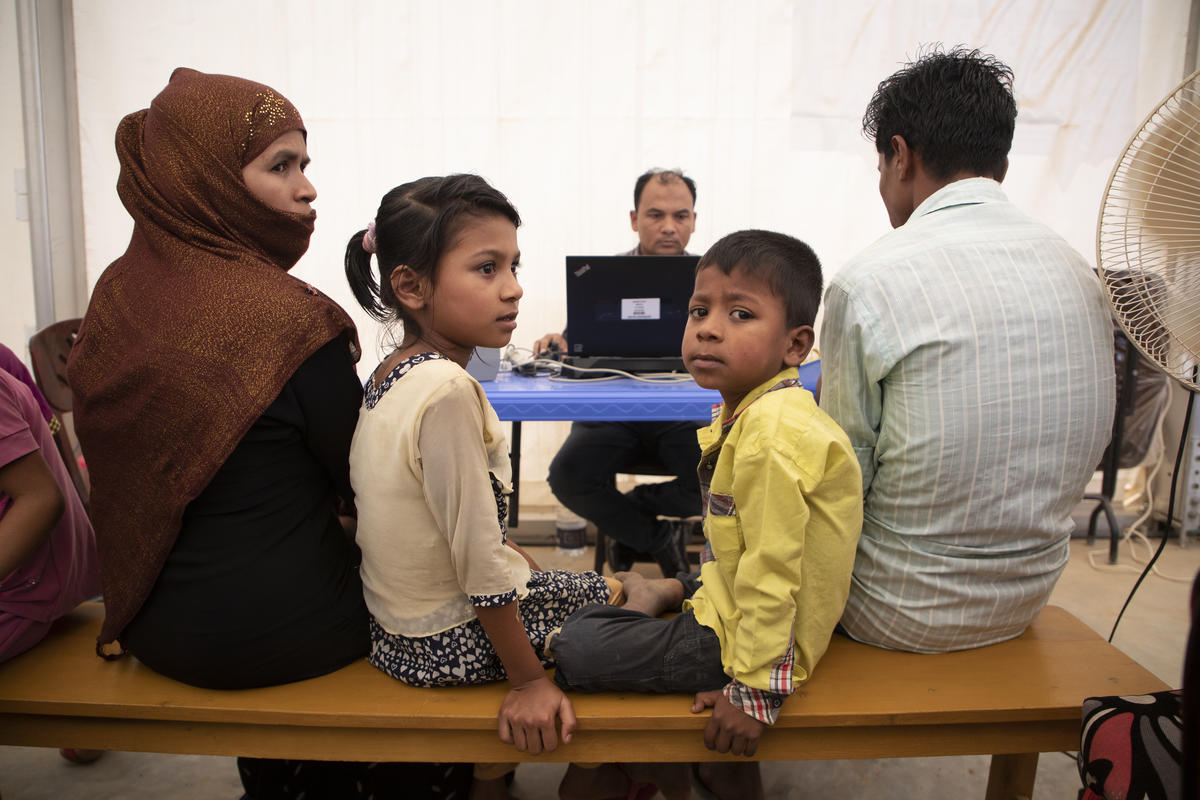Refugee registration in Namibia advances the search for solutions
Refugee registration in Namibia advances the search for solutions

OSIRE REFUGEE CAMP, Namibia, March 9 (UNHCR) - Aurelio was stopped and asked for his identification card by police while visiting friends in the Namibian capital. He ended up spending weeks in jail before returning to his refugee camp.
"With that document you could travel, but not in a safe condition," he said. That incident, the 19-year-old Angolan refugee believes, is much less likely to happen once refugees get sophisticated refugee ID cards following a re-registration exercise now being conducted by the government of Namibia and the UN refugee agency.
It seems like a small step, but a detailed record of all the refugees and asylum seekers - including their countries of origin, dates of arrival, age, education and skills - is essential for providing current protection and solutions for their futures.
At the most fundamental level, UNHCR needs to know the number of refugees who will need food rations or other assistance each month. It is also essential for planning as the agency, restructuring throughout southern Africa, extends responsibility to the Namibian government in coming years for almost all refugee affairs.
While the plastic ID card will not convey as many rights as refugees would like - such as permission to work - it will be similar in design to national IDs carried by Namibians and provide an effective way for refugees to prove they have legal refugee status. Refugees interviewed at the registration centre unfolded worn sheets of paper that were their only present forms of identification.
"The government of Namibia will gazette and promote the acceptance of the refugee cards and asylum-seeker certificates issued by the government at all levels; local authorities, banks, businesses and citizens of Namibia and for all administrative formalities in conjunction with the protection, assistance and durable solutions for refugees," said the formal agreement between UNHCR and the government.
Samuel Goagoseb, permanent secretary of the Ministry of Home Affairs and Immigration, said the programme at Osire fitted into Namibia's national plans: "The registration of refugees and asylum seekers that we are now carrying out with UNHCR is part of a national process that is also seeking to ensure all Namibians have IDs within the next three years."
The registration is a step toward the durable solutions which UNHCR seeks to find for refugees everywhere: voluntary repatriation to their homeland, local integration in their host country or resettlement to a third country for the few where other solutions are impossible.
"The card will further UNHCR's discussions on freedom of movement and local opportunities," Katja Paereli, a protection officer for the refugee agency, said amid the interview tables. "It's part of a process."
At present the 6,500 refugees and asylum seekers - the precise figure will emerge after checking of the data - have relatively few prospects of self-sufficiency. The dry, sandy soil of the camp limits agriculture and few refugees have government permission to work elsewhere. They need permission to leave the refugee camp, located nearly three hours drive from the capital, Windhoek.
But the detailed records of skills emerging from the registration will give a better idea of the potential for refugees contributing to the Namibian economy. Refugees from the Democratic Republic of the Congo, the second largest group in the camp, are often well educated.
The registration, the first thorough update of refugee figures in Namibia since 2004, began on February 19 and concluded in Osire last Wednesday. A registration of urban refugees and asylum seekers in Windhoek will be carried out next week.
At Osire, residents of each section of the camp were scheduled for different days. Their personal details were verified, their refugee status checked and they had pictures taken for the ID cards. The cards will be issued in about three months, after the data is reviewed.
The refugee cards will be valid indefinitely, while the simpler documents given to asylum seekers still awaiting a decision on their status will be valid for six months before needing renewal. Refugee children will receive cards at age six, which can be updated every three years. Data, including births and newly arrived refugees, will be continually updated.
By Jack Redden in Osire Refugee Camp, Namibia









